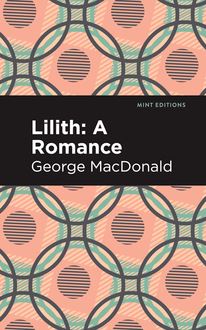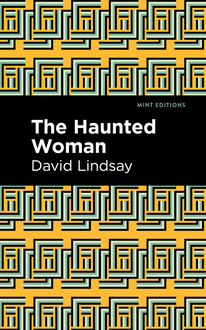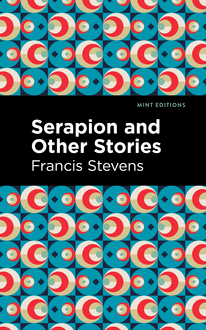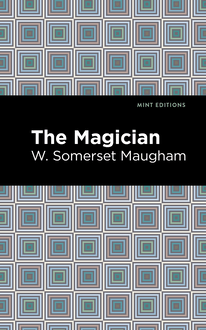-
 Univers
Univers
-
 Ebooks
Ebooks
-
 Livres audio
Livres audio
-
 Presse
Presse
-
 Podcasts
Podcasts
-
 BD
BD
-
 Documents
Documents
-
- Cours
- Révisions
- Ressources pédagogiques
- Sciences de l’éducation
- Manuels scolaires
- Langues
- Travaux de classe
- Annales de BEP
- Etudes supérieures
- Maternelle et primaire
- Fiches de lecture
- Orientation scolaire
- Méthodologie
- Corrigés de devoir
- Annales d’examens et concours
- Annales du bac
- Annales du brevet
- Rapports de stage
La lecture à portée de main
Vous pourrez modifier la taille du texte de cet ouvrage
Découvre YouScribe en t'inscrivant gratuitement
Je m'inscrisDécouvre YouScribe en t'inscrivant gratuitement
Je m'inscrisEn savoir plus
Vous pourrez modifier la taille du texte de cet ouvrage
En savoir plus

Description
What began as a simple visit with a friend quickly turns into an experience of revelation when Allan Quatermain and his dear friend, Lady Ragnall, inhale the smoke of an ancient Egyptian herb. Lady Ragnall, a widow, and the great explorer, Alan Quatermain share a special bond. Though they are both attracted to each other, they find themselves unsure if they should act on these feelings. While they struggle with their feelings, Lady Ragnall and Quatermain become intoxicated with an ancient herb that Quatermain obtained during his last expedition. Having underestimated its power, the herb forces Lady Ragnall and Quatermain into an intense hallucinatory state. Now living as iterations of their past selves, the couple find themselves in ancient Egypt during a time of political strife. Now known as Lord Shabaka, Quatermain is an Egyptian noble. Surprised by the longevity of their intense bond, Quatermain and Ragnall reconnect through their past iterations, deciding together that the civil unrest must be addressed. With high stakes and danger guaranteed, Quatermain leads an army to the lands of the Nile, determined to stop Middle Eastern invaders or die trying.
With action, intrigue, and romance, The Ancient Allan is a clever ending to a three-part adventure series written by the incomparable 19th century author, H. Rider Haggard. With topics of reincarnation, war, and romance, The Ancient Allan exceeds expectations with innovative wit and a unique storyline paired with a classic Allan Quatermain adventure. Written in imaginative and simple prose, The Ancient Allan is assessible to a wide range of audiences, relevant and inclusive to both children and adults.
This edition of The Ancient Allan by H. Rider Haggard features a striking new cover design and is printed in a font that is both modern and readable. With these accommodations, The Ancient Allan caters to a contemporary audience while preserving the original innovation and adventure of H. Rider Haggard’s work.
Sujets
Informations
| Publié par | Mint Editions |
| Date de parution | 09 mars 2021 |
| Nombre de lectures | 0 |
| EAN13 | 9781513278049 |
| Langue | English |
| Poids de l'ouvrage | 2 Mo |
Informations légales : prix de location à la page 0,0500€. Cette information est donnée uniquement à titre indicatif conformément à la législation en vigueur.
Extrait
The Ancient Allan
H. Rider Haggard
The Ancient Allan was first published in 1920.
This edition published by Mint Editions 2021.
ISBN 9781513277639 | E-ISBN 9781513278049
Published by Mint Editions®
minteditionbooks .com
Publishing Director: Jennifer Newens
Design & Production: Rachel Lopez Metzger
Project Manager: Micaela Clark
Typesetting: Westchester Publishing Services
C ONTENTS I. A N O LD F RIEND II. R AGNALL C ASTLE III. A LLAN G IVES H IS W ORD IV. T HROUGH THE G ATES V. T HE W AGER VI. T HE D OOM OF THE B OAT VII. B ES S TEALS THE S IGNET VIII. T HE L ADY A MADA IX. T HE M ESSENGERS X. S HABAKA P LIGHTS H IS T ROTH XI. T HE H OLY T ANOFIR XII. T HE S LAYING OF I DERNES XIII. A MADA R ETURNS TO I SIS XIV. S HABAKA F IGHTS THE C ROCODILE XV. T HE S UMMONS XVI. T ANOFIR F INDS H IS B ROKEN C UP XVII. T HE B ATTLE —A ND A FTER
I
A N O LD F RIEND
N ow I, Allan Quatermain, come to the weirdest (with one or two exceptions perhaps) of all the experiences which it has amused me to employ my idle hours in recording here in a strange land, for after all England is strange to me. I grow elderly. I have, as I suppose, passed the period of enterprise and adventure and I should be well satisfied with the lot that Fate has given to my unworthy self.
To begin with, I am still alive and in health when by all the rules I should have been dead many times over. I suppose I ought to be thankful for that but, before expressing an opinion on the point, I should have to be quite sure whether it is better to be alive or dead. The religious plump for the latter, though I have never observed that the religious are more eager to die than the rest of us poor mortals.
For instance, if they are told that their holy hearts are wrong, they spend time and much money in rushing to a place called Nauheim in Germany, to put them right by means of water-drinking, thereby shortening their hours of heavenly bliss and depriving their heirs of a certain amount of cash. The same thing applies to Buxton in my own neighbourhood and gout, especially when it threatens the stomach or the throat. Even archbishops will do these things, to say nothing of such small fry as deans, or stout and prominent lay figures of the Church.
From common sinners like myself such conduct might be expected, but in the case of those who are obviously poised on the topmost rungs of the Jacobean—I mean, the heavenly—ladder, it is legitimate to inquire why they show such reluctance in jumping off. As a matter of fact the only persons that, individually, I have seen quite willing to die, except now and again to save somebody else whom they were so foolish as to care for more than they did for themselves, have been not those “upon whom the light has shined” to quote an earnest paper I chanced to read this morning, but, to quote again, “the sinful heathen wandering in their native blackness,” by which I understand the writer to refer to their moral state and not to their sable skins wherein for the most part they are also condemned to wander, that is if they happen to have been born south of a certain degree of latitude.
To come to facts, the staff of Faith which each must shape for himself, is often hewn from unsuitable kinds of wood, yes, even by the very best among us. Willow, for instance, is pretty and easy to cut, but try to support yourself with it on the edge of a precipice and see where you are. Then of a truth you will long for ironbark, or even homely oak. I might carry my parable further, some allusions to the proper material of which to fashion the helmet of Salvation suggest themselves to me for example, but I won’t.
The truth is that we fear to die because all the religions are full of uncomfortable hints as to what may happen to us afterwards as a reward for our deviations from their laws and we half believe in something, whereas often the savage, not being troubled with religion, fears less, because he half believes in nothing. For very few inhabitants of this earth can attain either to complete belief or to its absolute opposite. They can seldom lay their hands upon their hearts, and say they know that they will live for ever, or sleep for ever; there remains in the case of most honest men an element of doubt in either hypothesis.
That is what makes this story of mine so interesting, at any rate to me, since it does seem to suggest that whether or no I have a future, as personally I hold to be the case and not altogether without evidence, certainly I have had a past, though, so far as I know, in this world only; a fact, if it be a fact, from which can be deduced all kinds of arguments according to the taste of the reasoner.
And now for my experience, which it is only fair to add, may after all have been no more than a long and connected dream. Yet how was I to dream of lands, events and people where of I have only the vaguest knowledge, or none at all, unless indeed, as some say, being a part of this world, we have hidden away somewhere in ourselves an acquaintance with everything that has ever happened in the world. However, it does not much matter and it is useless to discuss that which we cannot prove.
Here at any rate is the story.
I N A BOOK OR A record which I have written down and put away with others under the title of “The Ivory Child,” I have told the tale of a certain expedition I made in company with Lord Ragnall. Its object was to search for his wife who was stolen away while travelling in Egypt in a state of mental incapacity resulting from shock caused by the loss of her child under tragic and terrible circumstances. The thieves were the priests of a certain bastard Arab tribe who, on account of a birthmark shaped like the young moon which was visible above her breast, believed her to be the priestess or oracle of their worship. This worship evidently had its origin in Ancient Egypt since, although they did not seem to know it, the priestess was nothing less than a personification of the great goddess Isis, and the Ivory Child, their fetish, was a statue of the infant Horus, the fabled son of Isis and Osiris whom the Egyptians looked upon as the overcomer of Set or the Devil, the murderer of Osiris before his resurrection and ascent to Heaven to be the god of the dead.
I need not set down afresh all that happened to us on this remarkable adventure. Suffice it to say that in the end we recovered the lady and that her mind was restored to her. Before she left the Kendah country, however, the priesthood presented her with two ancient rolls of papyrus, also with a quantity of a certain herb, not unlike tobacco in appearance, which by the Kendah was called Taduki . Once, before we took our great homeward journey across the desert, Lady Ragnall and I had a curious conversation about this herb whereof the property is to cause the person who inhales its fumes to become clairvoyant, or to dream dreams, whichever the truth may be. It was used for this purpose in the mystical ceremonies of the Kendah religion when under its influence the priestess or oracle of the Ivory Child was wont to announce divine revelations. During her tenure of this office Lady Ragnall was frequently subjected to the spell of the Taduki vapour, and said strange things, some of which I heard with my own ears. Also myself once I experienced its effects and saw a curious vision, whereof many of the particulars were afterwards translated into facts.
Now the conversation which I have mentioned was shortly to the effect, that she, Lady Ragnall, believed a time would come when she or I or both of us, were destined to imbibe these Taduki fumes and see wonderful pictures of some past or future existence in which we were both concerned. This knowledge, she declared, had come to her while she was officiating in an apparently mindless condition as the priestess of the Kendah god called the Ivory Child.
At the time I did not think it wise to pursue so exciting a subject with a woman whose mind had been recently unbalanced, and afterwards in the stress of new experiences, I forgot all about the matter, or at any rate only thought of it very rarely.
Once, however, it did recur to me with some force. Shortly after I came to England to spend my remaining days far from the temptations of adventure, I was beguiled into becoming a steward of a Charity dinner and, what was worse, into attending the said dinner. Although its objects were admirable, it proved one of the most dreadful functions in which I was ever called upon to share. There was a vast number of people, some of them highly distinguished, who had come to support the Charity or to show off their Orders, I don’t know which, and others like myself, not at all distinguished, just common subscribers, who had no Orders and stood about the crowded room like waiters looking for a job.
At the dinner, which was very bad, I sat at a table so remote that I could hear but little of the interminable speeches, which was perhaps fortunate for me. In these circumstances I drifted into conversation with my neighbour, a queer, wizened, black-bearded man who somehow or other had found out that I was acquainted with the wilder parts of Africa. He proved to be a wealthy scientist whose passion it was to study the properties of herbs, especially of such as grow in the interior of South America where he had been travelling for some years.
Presently he mentioned a root named Yag é , known to the Indians which, when pounded up into a paste and taken in the form of pills, had the effect of enabling the patient to see events that were passing at a distance. Indeed he alleged that a vision thus produced had caused him to return home, since in it he saw that some relative of his, I think a twin-sister, was dangerously ill. In fact, however, he might as well have stayed away, as he only arrived in London on the day after her funeral.
As I saw that he was really interested in the subject and observed that he was a v
-
 Univers
Univers
-
 Ebooks
Ebooks
-
 Livres audio
Livres audio
-
 Presse
Presse
-
 Podcasts
Podcasts
-
 BD
BD
-
 Documents
Documents
-
Jeunesse
-
Littérature
-
Ressources professionnelles
-
Santé et bien-être
-
Savoirs
-
Education
-
Loisirs et hobbies
-
Art, musique et cinéma
-
Actualité et débat de société
-
Jeunesse
-
Littérature
-
Ressources professionnelles
-
Santé et bien-être
-
Savoirs
-
Education
-
Loisirs et hobbies
-
Art, musique et cinéma
-
Actualité et débat de société
-
Actualités
-
Lifestyle
-
Presse jeunesse
-
Presse professionnelle
-
Pratique
-
Presse sportive
-
Presse internationale
-
Culture & Médias
-
Action et Aventures
-
Science-fiction et Fantasy
-
Société
-
Jeunesse
-
Littérature
-
Ressources professionnelles
-
Santé et bien-être
-
Savoirs
-
Education
-
Loisirs et hobbies
-
Art, musique et cinéma
-
Actualité et débat de société
- Cours
- Révisions
- Ressources pédagogiques
- Sciences de l’éducation
- Manuels scolaires
- Langues
- Travaux de classe
- Annales de BEP
- Etudes supérieures
- Maternelle et primaire
- Fiches de lecture
- Orientation scolaire
- Méthodologie
- Corrigés de devoir
- Annales d’examens et concours
- Annales du bac
- Annales du brevet
- Rapports de stage




















